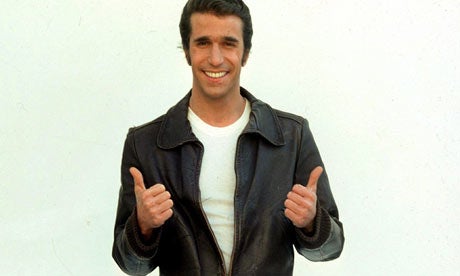Why should Ed apologise to David in public?
UK inhabitants are famous for saying “sorry” when it’s not our fault

Some older readers may recall the gloriously innocent American comedy series Happy Days, starring Henry Winkler as Arthur “the Fonz” Fonzarelli, the local tough guy who hid his heart of gold.
One of The Fonz’s character traits was an inability to admit he’d ever made a mistake and apologise. Fonzie struggled with regret: “ I was w-wr-wr-wrooong” and “I’m s-s-so-so-soooorrry” would leave me in stitches.Well, they were more innocent times.
On a weekend where regrets, apologies, or their absence were all over the media, it got me thinking about the psychology of apology, especially in a nation whose inhabitants are famous for saying “sorry” when it’s not our fault.
On Sunday’s Desert Island Discs, Ed Miliband admitted to presenter Kirsty Young that his relationship with his brother David had not fully recovered more than three years after their Labour leadership battle. However, Ed did claim it was “healing, healing”.
That’s good to hear. Life’s surely too short for family feuds to endure? Trust me, growing up in an Italian family, I know what I’m talking about. What then to make of a very conscious decision to insert Edith Piaf’s “Je ne regrette rien” into his playlist?.
Are things not really “healing, healing”? Or, perhaps the need to appear resolute in the eyes of the public outweighs his need to heal the rift? He will absolutely have known how unapologetic he would appear.
Perhaps he was aware that sometimes an apology itself opens a greater can of worms. It’s why more than one company I’ve worked for had a “never complain, never explain” policy. And, not just because we live in increasingly litigious society where an admission of error often sees the “wronged” reach for the lawyer’s number.
Outside of the law, the apology may just heap more focus on future behaviour. Look at the added pressure that Mike Riley, the Premier League referees’ chief, has just heaped on hapless Andre Marriner and other referees by apologising to the West Brom manager Steve Clarke for Marriner’s costly late penalty award to Chelsea two weeks ago.
It was a gift for Chelsea’s Jose Mourinho, whose subsequent mischief-making was matched only by the crassness of the West Brom manager, Steve Clarke, in making a private apology public. Cue the Sunderland boss, Gus Poyet, demanding an apology for his player being wrongly sent off on Saturday. And so it begins.
“Sorry seems to be the hardest word” sang Sir Elton, and in many walks of life it should stay that way. Why should Ed apologise in public to David if he doesn’t feel he has done wrong? Why force public apologies for genuine sporting mistakes. In life, often an accident is simply that. That said, we can all think of people we’d like a public apology from. Martin Jol, are you listening?
Stefano Hatfield is editorial director of London Live
Twitter: @stefanohat

Join our commenting forum
Join thought-provoking conversations, follow other Independent readers and see their replies